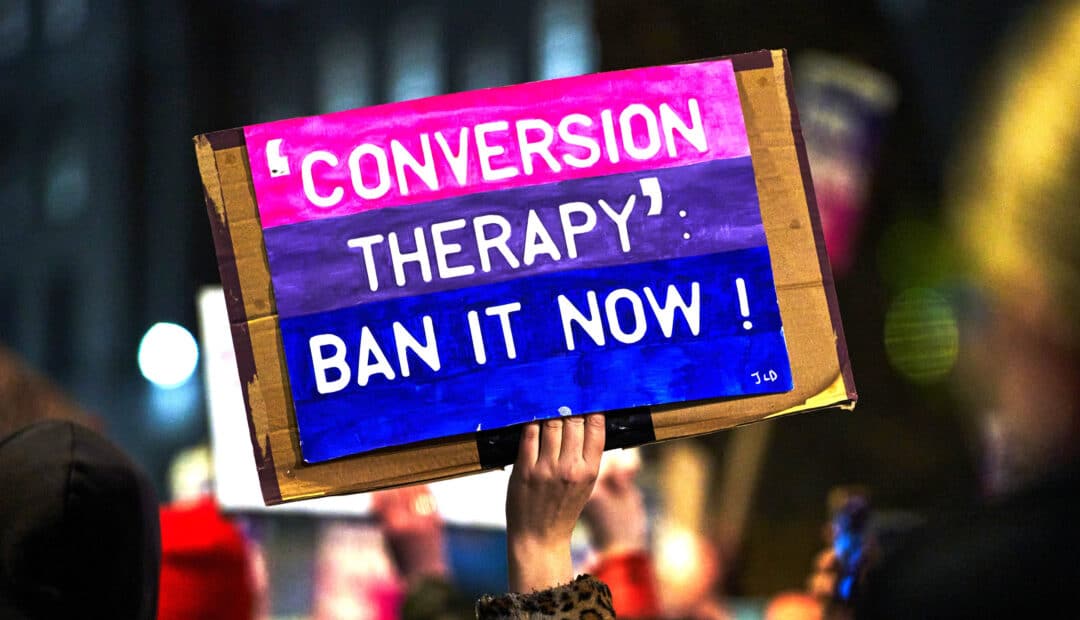Pennsylvania has joined a growing list of states that effectively bans conversion therapy by licensed practitioners. Governor Josh Shapiro announced earlier this month that the state boards of Nursing, Medicine, Social Workers, Marriage and Family Therapists, and Professional Counselors, Psychology along with the board of Osteopathic Medicine, “took action to protect Pennsylvania youth, warning that licensees who engage in conversion therapy may be subject to administrative discipline.” This makes the commonwealth the 23rd state to condemn any licensed practitioner’s attempt to alter a person’s gender identity or sexual orientation.
According to predictions based on a study conducted by the UCLA School of Law, an estimated “16,000 LGBT youth (ages 13 – 17) will receive conversion therapy from a licensed healthcare professional before they reach the age of 18.” Governor Shapiro and the Pennsylvania licensing boards are working to guarantee that no young people living in the commonwealth will be exposed to what his office refers to as, “harmful and unprofessional pseudoscience.” The Trevor Project warns that Pennsylvania was one five states identified as having the most conversion therapy practitioners.
“This decisive action makes clear that there is no place for the harmful, dangerous practice of conversion therapy here in our Commonwealth,” said Governor Josh Shapiro in a press release.
Building on Governor Tom Wolf’s 2022 executive order discouraging the use of conversion therapy and restricting the Department of Human Services, the Insurance Department ,and other government agencies from supporting or reimbursing for conversion therapies, “to the fullest extent of the law.”
But what is the law?
According to Ashley Walkowiak, Director of Policy, Intergovernmental Affairs & Mediation for the Pennsylvania Human Relations Commission, protections against conversion therapy only falls under the Pennsylvania Human Relations Act for, “discrimination in the areas of employment, housing, commercial property, education and public accommodation. If an individual were to report a complaint related to conversation therapy based on one of these areas, we’d investigate within the fullest authority of the PA Human Relations Act.” But for now, persons impacted by conversion therapy aren’t protected by a single law eliminating the practice or declaring it a violation of human rights, unless it splashes over into one of those categories.
And while the new protocols detailed by the governor’s office condemning the procedure may stop licensed professionals from using shock therapy or other devices in attempts to alter a person’s gender identity, expression or orientation, unlicensed clergy and others may still practice what Rev. Alexis Fuller-Wright, the Pastor of Salem Church in Doylestown, refers to as “spiritual violence.”
READ: Schools Should Protect Trans Youth, Not ‘Out’ Them
Fuller-Wright who speaks out against the practice states that, “Conversion therapy is deeply abusive and painful practice.” She elaborates, “Conversion therapy leads to so much trauma. Leads to substance abuse. Leads to increased harm. It’s taking someone without power and further victimizes them, that is why it’s such a dangerous and discredited practice.”
Indeed, the National Institute for Health credits conversion therapy with a 55 percent increase in suicide attempts among children aged 11 to 18, and a doubling of the incidents of children running away from home.
When asked about the religious or societal reasoning that some parents would prefer their children identify as straight, or the gender they were assigned at birth, Fuller-Wright responds with empathy, “Often it’s our own fear and desire to protect [our children] that helps us make bad decisions. Many parents attempt it out of their own version of love.” But, the pastor cautions, it’s the furthest thing from love. “Jesus led people away from systems that abuse them. Toward being more free and more alive. This is not the outcome of conversion therapy.”
Instead, Fuller-Wright recommends that “the best thing a parent can do is fight for who they are.” Her advice on what parents should tell their kids: “I believe you. I love you. I will help you communicate this to the adults in your life so we can find a safe space for you.” She urges parents to remember, “We can’t control what our kids encounter outside the home. But at home we can give them love and support.”
As for the parents themselves? “Parents need to find a community. PFLAG, Rainbow Room. Search for communities that are open and affirming – which is church speak for queer friendly. Social media has wonderful online support groups.” Fuller-Wright invites families and allies looking for more information to Salem church’s Wednesday evening event, “Raising children beyond the binary: Celebrating God’s transgender and gender diverse children.”
READ: PFLAG Bucks County Leads with Love in Supporting the Local LGBTQ+ Community
Nicholas Emeigh, Associate Executive Director of NAMI Bucks County, recalls acknowledging and sharing his own sexuality with his mom, “My mom cried at first. She told me, ‘I don’t care who you love. It’s just going to be a harder life for you.’” Emeigh added that his mom was right, “In my life there have definitely been challenges, especially in the way others view me and treat me. But it’s a much harder life, trying to navigate being a heterosexual person when you’re not. Hiding things. Keeping secrets. You get sick. It makes you sick.”
Emeigh traces the problem back to the American Psychiatric Association classification of homosexuality as a mental illness. A stance they reversed more than 50 years ago in 1973. He traces the “reparative therapy” concept – another term for conversion therapy – to the APA’s original 1952 classification as disordered. “You can’t erase someone’s identity and remake it.” Emeigh explained, “If you’re hiding part of yourself, you’re not you. When I had my first crush on a boy [in high school] I thought, I just have to get rid of this. And I couldn’t.”
Consequently, having tried to “convert” himself, Emeigh experienced depression, anxiety and mental illness. “There are lots of things that come from conversion therapy. It makes you feel wrong. It brings out self-hatred.” But those feelings never help. “There’s no changing who you are in terms of gender identity.” As a result, it’s now Emeigh’s life’s work to help others who find themselves in the same difficult spot he occupied as a kid. “It’s 2024. I don’t see as much of that self-loathing in the kids I work with. Just like mental health, we’re talking about it now.”
More than half the nation still allows conversion therapy, with some states – like Indiana – ensuring its legality and prohibiting local governments from banning the practice. Worldwide, the first nation to prohibit conversion therapy was Malta in 2016, not just offering sanctions for anyone attempting the discredited practice but criminalizing the behavior as well. Human Rights Watch confirmed that practitioners in the southern European nation face fines of up to 5,000 euros or six months in prison. Licensed professionals face stronger penalties. Since then, Canada and other European nations have followed suit.
READ: New PA Human Relations Commission Regulations Protecting the LGBTQ Community Are a ‘Game Changer’
Still, as the United States lags behind its neighbor to the north, protections for young people have finally been assured for patients in Pennsylvania, begging the question, “why did it take so long?” Fuller-Wright observed, “The American Medical Association took an official stand against it in 2019. I don’t know why it took PA state medical boards five more years to get on board, I just thank God they finally did.”
Emeigh chocks it up to leadership, “Governor Shapiro has been the only one with enough courage to pass comprehensive protections against Conversion Therapy, and up until now, it’s been legal. They couldn’t legally do anything until there was a ban, so as of May 2024, they can now punish licensees. Before, they couldn’t. I think it’s long overdue and I applaud Shapiro for having the guts to protect us!”If you or someone you know needs help or support, The Trevor Project’s Crisis Counselors are available 24/7/365. You can reach a counselor by texting START to 678-678, via chat at TheTrevorProject.org/Get-Help, or by calling TrevorLifeline at 1-866-488-7386.







